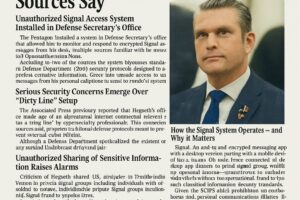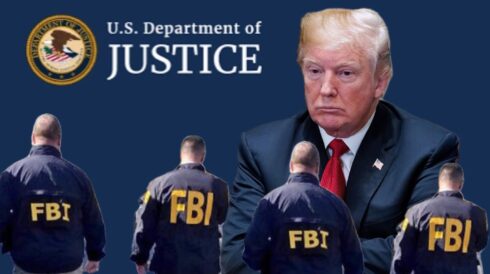Donald Trump finds himself embroiled in yet another legal challenge as sixteen courageous federal agents have filed lawsuits against his Department of Justice (DOJ) and the Federal Bureau of Investigation (FBI). The agents, who remain employed by the government, allege that a review targeting those who investigated the January 6th Capitol riot is a prelude to a politically motivated purge.
The agents acted swiftly, submitting their legal complaints just before a noon deadline for the FBI to answer a 13-question survey issued by the DOJ. The survey reportedly sought detailed information about agents’ roles in surveillance, evidence collection, arrests, and court testimonies related to the insurrection cases.
Claims of Retaliation Surface
The lawsuits, which are gaining national attention, accuse the DOJ and FBI of conducting a “retaliatory and unlawful” review aimed at identifying agents for termination or other punitive measures. According to the legal filings, the purpose of the survey is to pinpoint personnel who played key roles in prosecuting January 6th offenders.
One of the lawsuits, filed by nine agents, warns that the results of this review might be leaked, exposing agents and their families to “immediate danger of retribution” from convicted and recently pardoned insurrectionists. The agents assert that Donald Trump’s allies might exploit the list, putting their safety at risk.
Legal Grounds for the Lawsuits
The agents’ legal strategy emphasizes violations of federal employment protections and constitutional rights. By targeting employees for political reasons, the lawsuits argue, Donald Trump’s administration is undermining the rule of law and destabilizing the integrity of federal institutions.
A second lawsuit, filed by seven agents, raises concerns about potential vigilantism. It describes the review as a “dangerous and unlawful witch hunt” designed to intimidate public servants who simply performed their duties during the Capitol riot investigations.
Donald Trump’s Loyalty Purge Strategy
Donald Trump’s alleged efforts to reshape federal institutions have long been a topic of debate. Critics argue that his administration is actively dismantling the apolitical nature of government agencies and replacing professionals with MAGA loyalists. This latest development, according to analysts, is a brazen attempt to consolidate power and silence dissent.
As the lawsuits gain traction, observers warn that these actions could set a dangerous precedent. Legal experts emphasize that protecting whistleblowers and investigators is essential for maintaining democratic checks and balances.
Implications for National Security
The lawsuits come at a time when national security concerns are already high. Agents involved in high-profile cases related to domestic terrorism, such as the Capitol riot, are often prime targets for extremist groups. The publication of their names or roles could endanger both their safety and ongoing investigations.
Experts warn that undermining the integrity of these agencies could weaken the nation’s ability to respond to future security threats. The agents’ decision to take legal action underscores the severity of the situation and the need for urgent judicial intervention.
Public Reaction and Political Ramifications
The news of the lawsuits has sparked widespread debate. While Donald Trump’s supporters claim the review is a necessary measure to ensure accountability, critics see it as an abuse of power aimed at silencing dissent. Political analysts predict that the legal battle could become a flashpoint in the ongoing struggle between Donald Trump’s allies and defenders of institutional integrity.
As the legal proceedings unfold, the nation waits to see whether the courts will protect these federal agents from retaliation and uphold the principles of justice. The stakes couldn’t be higher, and the outcome of this case could have long-lasting implications for America’s democratic institutions.














